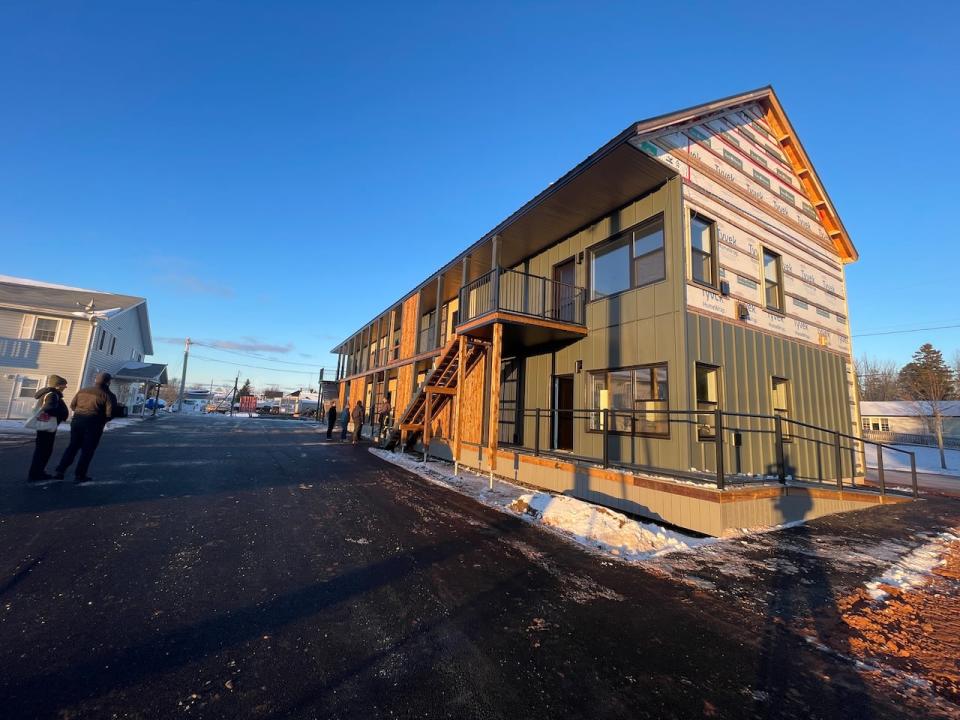Communities have a choice with federal money, says housing minister
The federal government can't force municipalities to change their zoning bylaws, says federal Housing Minister Sean Fraser — but they should not expect Ottawa to hand over money to keep doing things the way they've always been done.
Fraser was on P.E.I. Friday to attend the Atlantic Mayors' Congress in Summerside.
In an interview before that meeting, Fraser told Island Morning's Steve Bruce the shortage of housing that was long a problem mostly in Canada's largest urban centres has spread beyond city borders across the country, including in Atlantic Canada.
"Increasingly we're hearing it from ... not just cities, but small communities as well," he said.
"The problem has expanded beyond access to housing for low-income families, and it's having a dramatic impact for middle-class families who can't afford a place in the market, who've seen rents that have gone out of control, or purchase prices that are beyond reach for a generation of young people."
The housing crunch on P.E.I. has been described as a crisis since 2019, coming on the heels of a population boom that began three years earlier.
Population growth, which had been flat, jumped to close to two per cent that year and has been higher than three per cent since 2022. Housing construction has struggled to keep up.

While P.E.I. has been leading the country in population growth, immigration has fueled growth and contributed to housing shortages across Canada.
'We're not insisting'
The federal government has responded with funding to help communities build new apartment buildings and other forms of housing, but there are strings attached.
Ottawa wants municipalities to allow for higher-density buildings as a way to get more home units built faster.
"This is not a mandatory change. We're not insisting, nor do we have the authority to insist, that communities make changes to municipal zoning rules," said Fraser.
"That's within the purview of municipalities and provincial governments. However, there's no obligation for the federal government to simply transfer money for the status quo."
We should be making the most of the infrastructure we have now so we can reduce the burden on municipal ratepayers who are going to end up being the ones who subsidize the cost of new infrastructure. — Housing Minister Sean Fraser
Charlottetown initially had reservations about the federal government's higher-density requirements, but did reach an agreement on the Housing Accelerator Fund earlier this year.
$94.5M for infrastructure
There's another good reason to prefer higher density, particularly in existing neigbourhoods, said Fraser: Building brand-new streets and sewers is expensive.
"We should be making the most of the infrastructure we have now so we can reduce the burden on municipal ratepayers who are going to end up being the ones who subsidize the cost of new infrastructure," he said.
But he said the federal government does recognize that more infrastructure will be necessary.
Ottawa has just concluded a Canada Community Building Fund deal with P.E.I. for $94.5 million. That five-year deal will fund not just streets and wastewater treatment facilities, but other other essential infrastructure such as transit lines and fire halls.
Making progress
The P.E.I. government released a housing strategy in February that estimated the province would need to build 2,000 homes a year for the next five years to bring some balance to the market.
It's a tall order. The province has only hit that mark once, and that was more than 50 years ago, in 1973.
First-quarter housing-start statistics did show promise, however. It was far and away the best first quarter on record for Prince Edward Island. The winter season is typically slow for housing starts, but this year it was 24 per cent above the 2018-23 average.
There are signs that this fast pace of building will not continue through the year, though.
The number of building permits issued in the first four months of this year was 379, a few more than were issued in 2023, but well below the more than 500 issued in 2021 and 2022.

 Yahoo News
Yahoo News 